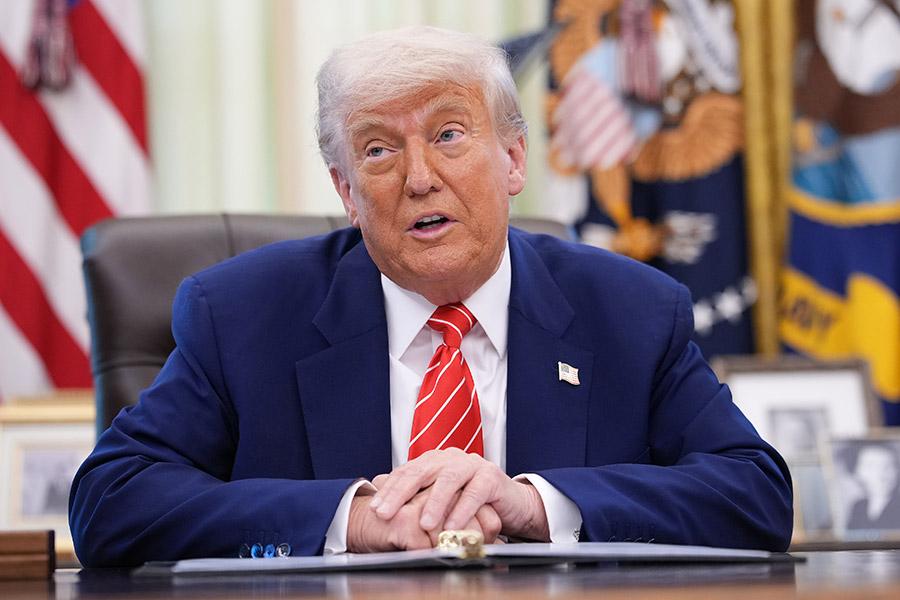Investors are braced for days of turmoil as conflict in the Middle East rattles global markets, writes Hugo Duncan.
Oil spiked higher and sterling fell to a five-week low against the US dollar early yesterday as the world awaited Tehran’s response to the US bombing of Iran’s nuclear sites.
But crude gave up its gains – dropping from above $81 a barrel to around $76 later in the session – while the pound rose back towards $1.35, having earlier slipped as low as $1.3371.
The initial sell-off in the pound came as nervous investors piled into the relative safety of the greenback.
European stock markets drifted slightly lower, with the FTSE 100 down 0.2pc in London, the DAX 0.4pc lower in Frankfurt and the CAC falling 0.7pc in Paris.
On Wall Street, the Dow Jones rose 0.6pc and the S&P 500 was up 0.7pc.
The mood was calmer than many feared, even as Donald Trump warned of “regime change” in Iran and Tehran targeted US bases in Qatar and Iraq.
“It’s at times like these that investors must wish they had some kind of crystal ball,” said AJ Bell investment director Russ Mould.
Matthew Ryan, head of market strategy at Ebury, said that while market moves “have been relatively contained”, investors remain “on edge”.
He added: “All eyes are on the extent of the retaliation from Iran, whether through further missile and drone strikes on Israel or a blockade of the strait of Hormuz.
“Investors appear to be clinging on to hopes of de-escalation.
“At this stage, markets are in the dark as to where we go from here.
“An escalation would be greeted with another bout of risk aversion, as investors would price in rising geopolitical uncertainty, higher oil prices and possible supply-chain disruption.

“The US dollar would remain well placed in this environment.”
Analysts at Morgan Stanley noted that market sell-offs caused by geopolitical events are often brief.
“History suggests most geopolitically-led sell-offs are short-lived/modest,” strategist Michael Wilson wrote.
“Oil prices will determine whether volatility persists.”











